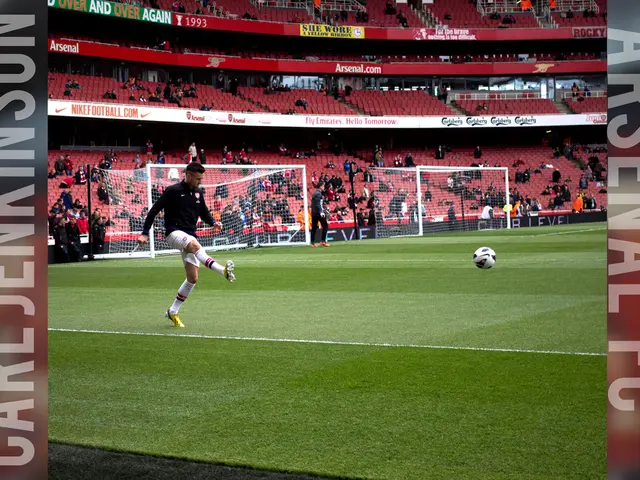Rethinking UFC's Business Model: Two New Lawsuits Threaten the Promotion's Future
Dramatic legal action disrupts UFC's economic structure
Author: Michael Bauer
Social Media Icons: Facebook, Twitter, Whatsapp, Email, Print
The UFC's unique approach to contracting MMA fighters could face a dramatic overhaul as two new lawsuits challenge the organization's business model. These legal battles might have profound consequences for the entire sport and the UFC itself.
Compensation for fighters within the Ultimate Fighting Championship has long been a contentious issue in the MMA industry, with many fighters feeling underpaid and alleging that the UFC abuses its dominant market position [1]. These concerns have already led to a class-action lawsuit that was partially settled for an impressive $375 million after a ten-year battle [2]. Now, another two lawsuits are poised to reshape the UFC's business model, potentially creating seismic shifts within the industry.
Current UFC contracts classify fighters as exclusive service providers rather than employees [3]. These contracts restrict them from quickly switching to other organizations, as they are bound to certain terms and a fixed number of guaranteed fights by the promoter. Injuries, rejected fights, or title wins can extend these contracts. The complexity of these contracts, which often work to the disadvantage of athletes, increases with the size of the organization [3].
The ongoing dispute that embroiled several former UFC fighters against the parent company, Zuffa LLC, has been a protracted affair, with the UFC initially seeking an unconditional settlement. However, the judge declined, asserting that the compensation was inadequate, and that contract clauses preventing more fighters from joining the lawsuits were problematic [3]. The judge also criticized the lack of a plan to address the UFC's possible monopoly status [3].
The first of the new lawsuits picks up on these concerns, focusing on damages for fighters who cannot participate in a lawsuit due to contractual restrictions [3]. This move could significantly enhance the potential pool of plaintiffs and the claimed damages, which could run into hundreds of millions of dollars [3].
Related: Sports - The Next Event in Germany? Magomedov: This Fighter Could Be the Next to Make it to the UFC
The second lawsuit, filed at the end of May, is more unusual but just as impactful [4]. Ex-UFC fighter Phil Davis aims not to claim damages for himself but to prove that the UFC's monopoly position affects the payment of fighters in other organizations [4]. Davis alleges that the contract system of the UFC makes it impossible for other professional MMA event organizers like the Professional Fighters League (PFL) to compete with the UFC [4].
Long contract terms with the UFC limit other organizations' access to top talent, thus organizing fights at the same level as the UFC becomes impossible [4]. Davis is a victim of this scenario, ranked eighth in the welterweight rankings but unable to find fights suitable for his skill level and remunerative purse [4].
Davis is challenging the UFC's contractual practices, proposing a "sunset clause" - a contractual provision that automatically ends or makes certain obligations ineffective after a specified period [4]. Such a clause would allow premature contract termination. The UFC included such a clause in its contracts for a brief period after the first antitrust lawsuit in 2014 but subsequently removed it when fighters like Francis Ngannou exploited it to escape the promotion's control and negotiate better pay with other organizations [4].
Davis is pushing for a one-year "sunset clause," which could overhaul the entire MMA landscape [4]. This would permit many UFC fighters to join other organizations within months, enabling them to renegotiate their salaries with increased freedom. Although this would ensure market-based pay, large organizations would face instability due to the lack of contractual assurances [4].
The result could be high turnover rates, with many unsatisfied fighters remaining inactive during their contracts [4]. In terms of roster composition, there would be fewer iconic figures, but the UFC would shoulder the brunt of the financial impact as many of its stars would likely pursue lucrative opportunities elsewhere [4].
The outcomes of these lawsuits are unpredictable, but given the existing judicial concerns about the UFC's possible monopoly status, protracted and complex legal battles are likely [5].
Sources: ntv.de
Insights:
- Contractual changes: The UFC might be forced to reform its contract terms, potentially eliminating or modifying clauses that restrict individual arbitration and class-action waivers. This can benefit fighters by affording them greater freedom to participate in class-action suits and negotiate improved pay and benefits.
- Transparency and fairness: UFC contract reforms can lead to increased transparency and fairness in regards to how fighters are treated and compensated within the organization.
- MMA market impact: If the UFC is found to have imposed anticompetitive practices, it could face regulatory actions or court orders to change its business practices, potentially opening up opportunities for fighters to move between promotions and negotiate better deals.
[1] ntv.de
[2] Sports Illustrated
[3] The Athletic
[4] The Athletic
[5] ntv.de
The lawsuits against the Ultimate Fighting Championship (UFC) might alter the compensation structure and business model of mixed martial arts (MMA), a sport that is closely associated with the UFC. If the UFC's monopolistic practices are deemed harmful, the entire MMA industry could experience changes, as other organizations could negotiate more favorably with top MMA fighters. The implementation of "sunset clauses" in contracts could allow fighters to transition to other organizations more freely, potentially leading to increased market-based pay but also instability for large organizations.





